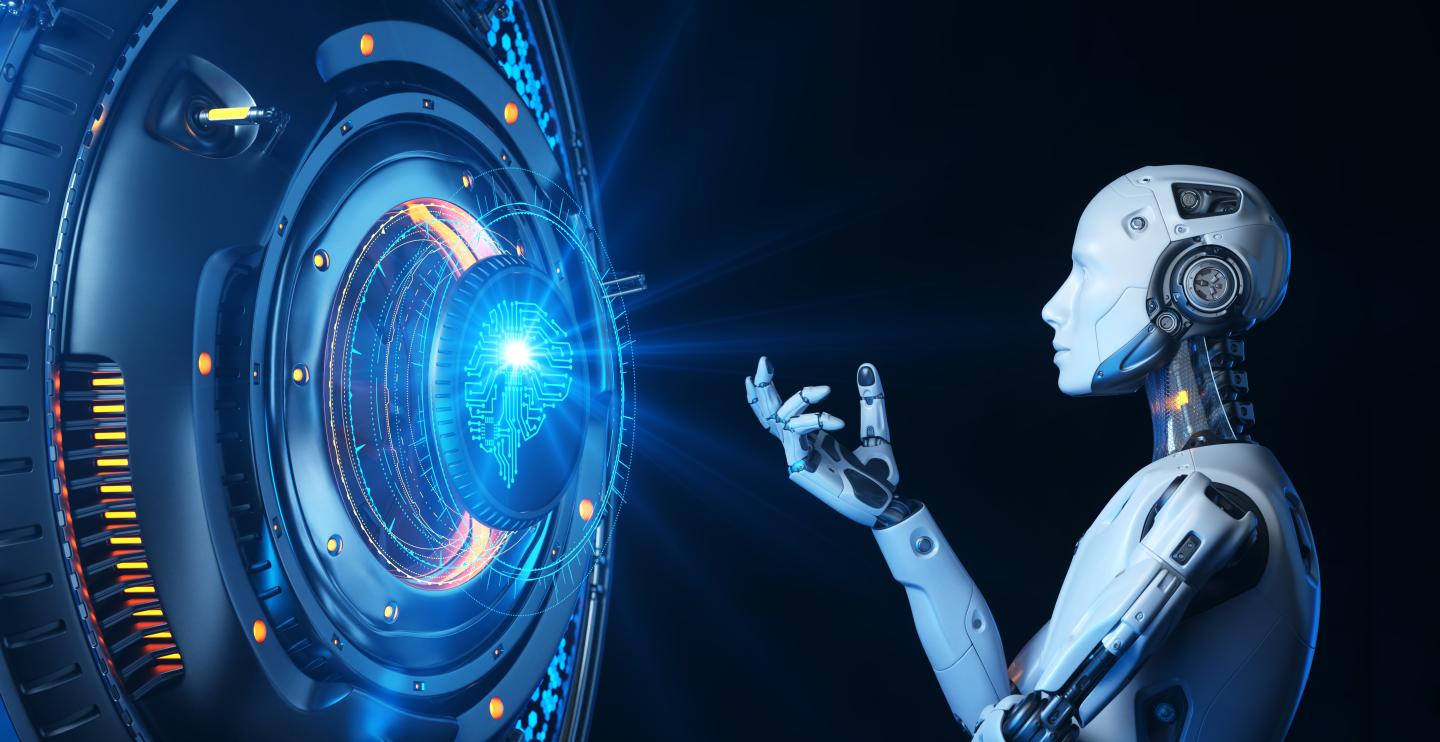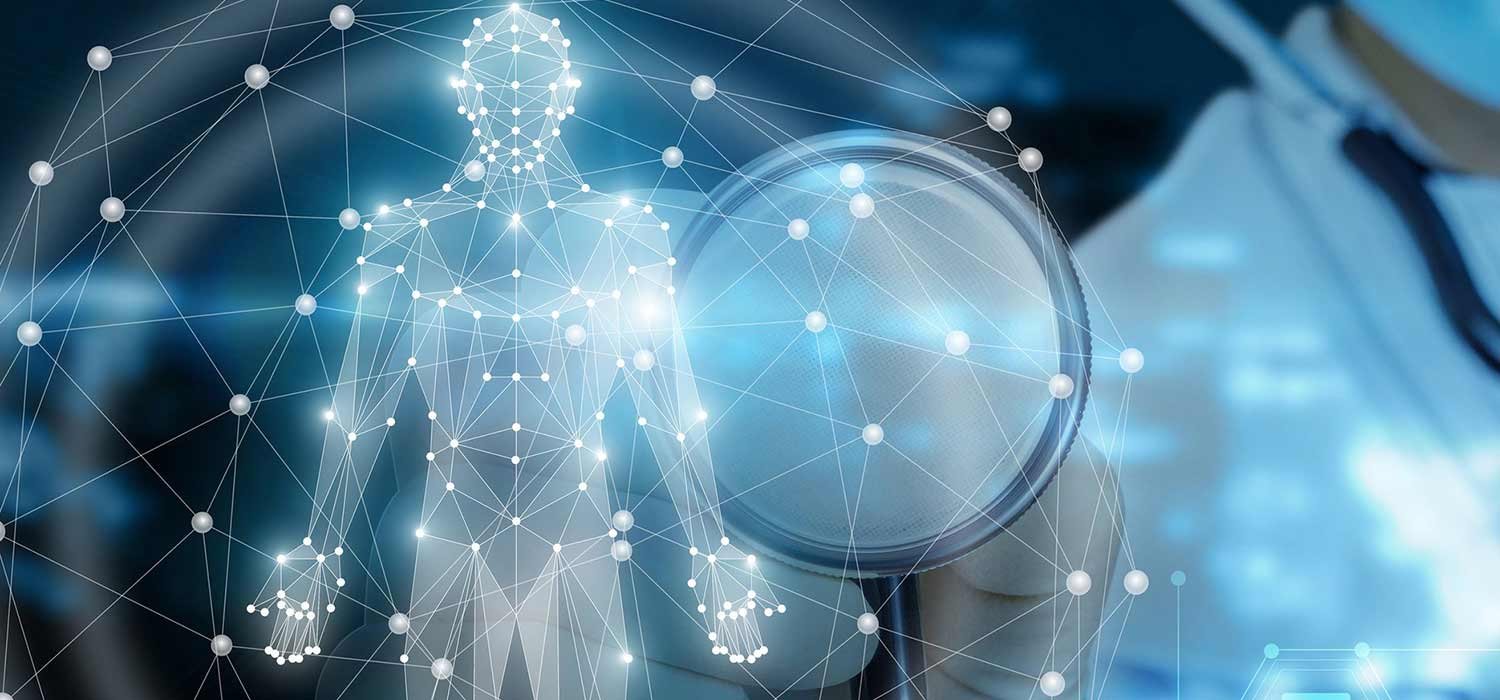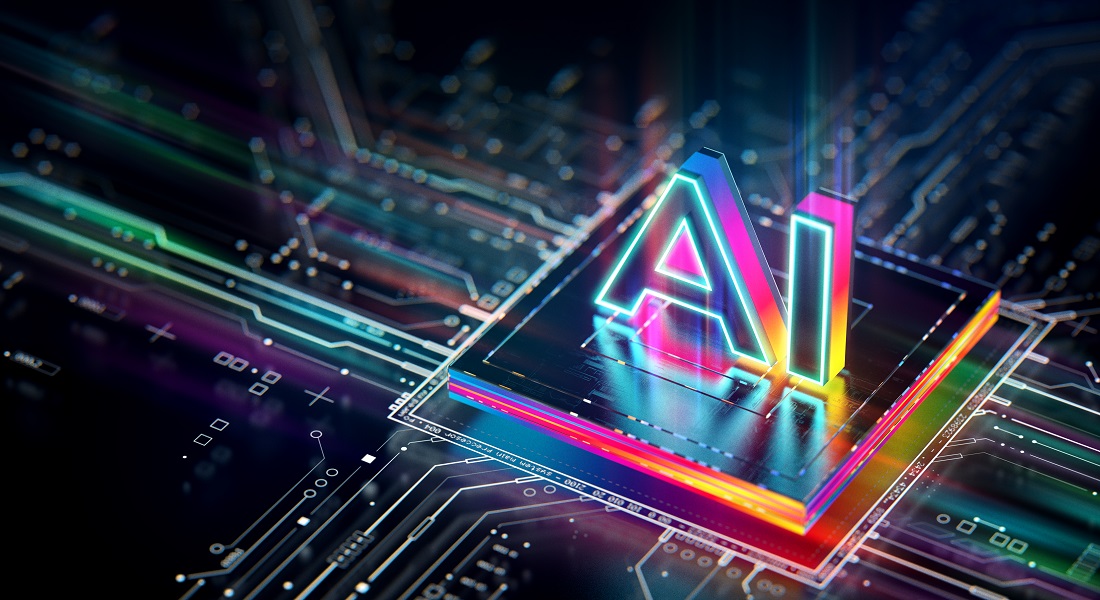
The potential of AI technology has actually been percolating in the background for several years. But when ChatGPT, the AI chatbot, began getting headlines in early 2023, it put generative AI in the spotlight. This guide is your go-to manual for generative AI, covering its benefits, limitations, utilize cases, prospects and a lot more.
What is OpenAI?

- Share this product with your network:
-
-
-
-
-
-.
-.
-.
-
- Cameron Hashemi-Pour, Former Site Editor
OpenAI is a private lab that intends to establish and direct expert system (AI) in manner ins which benefit mankind as a whole. The company was founded by Elon Musk, Sam Altman and others in 2015 and is headquartered in San Francisco.
OpenAI was produced in part since of its founders' existential concerns about the capacity for disaster resulting from carelessness and misuse of general-purpose AI. The company has a long-term focus on essential advances in AI and its abilities. The creators of the business and other investors began the business with a $1 billion endowment. In February 2018, Elon Musk left the company due to a prospective dispute of interest with his work at Tesla, the automobile and clean energy company inspired by Nikola Tesla.
The stated intent of the company-- to pursue safe artificial basic intelligence (AGI) for the advantage of humanity-- is reflected in its goal to easily collaborate with other research study companies and people. Research and patents made by the company are meant to remain open to the public other than in cases where they might negatively affect safety.
Timeline and history of OpenAI
OpenAI was originally focused on establishing AI and artificial intelligence tools for video games and other recreational purposes. Less than a year after its main starting on Dec. 11, 2015, it launched its very first AI offering: an open source toolkit for developing support learning (RI) algorithms called OpenAI Gym. Over the next 2 years, OpenAI focused on more general AI development and AI research study.
This article is part of
What is Gen AI? Generative AI explained
- Which likewise includes:.
8 leading generative AI tool categories for 2025.
Will AI change jobs? 17 task types that may be impacted.
25 of the very best large language designs in 2025
In 2018, OpenAI released a report to discuss to the world what a Generative Pre-trained Transformer (GPT) is. A GPT is a neural network, or a device discovering model, developed to work like a human brain and trained on input, such as big information sets, to produce outputs-- i.e., responses to users' questions.
In March 2019, OpenAI moved from nonprofit to capped-profit status and became officially known as OpenAI LP, managed by moms and dad company OpenAI Inc. Almost 2 years later, in January 2021, OpenAI presented Dall-E, a generative AI design that evaluates natural language text from human users and then creates images based upon what is explained in the text.
Perhaps the business's best-known product is ChatGPT, launched in November 2022 and heralded as the world's most innovative chatbot for its ability to provide responses to users on a seemingly limitless variety of topics. Its advantages and drawbacks, along with its usages in numerous markets, are still being disputed.
Elon Musk no longer serves on the board of the business, and co-founder Sam Altman served as the company's CEO up until November 2023 along with president and chairman Greg Brockman, previously the CTO of financial services and SaaS business Stripe; and primary researcher Ilya Sutskever, previously of Google.
In November 2023, Altman was fired from his position by the board of directors, citing that Altman was not candid in his interactions to the board. Soon after, Brockman left the business. Both were worked with by Microsoft 3 days after leaving the business.
Emmet Shear, co-founder of Twitch, was hired as the interim CEO at OpenAI after Altman's departure. Following Altman's firing, around 500 of OpenAI's staff members said they would quit if the board of directors didn't step down. After just 5 days, Altman and Brockman were re-hired in their original functions at OpenAI with a brand-new board of directors.
Notable tasks and releases
OpenAI has been deemed innovative for its noteworthy item offerings, that include the following:
GPT-3. This powerful large language model (LLM) works as the basis for other OpenAI items. It analyzes human-generated text to learn to produce comparable text on its own.
GPT-4. Released in March 2023, GPT-4 provides multimodal AI performance, where it can examine both text and images.
GPT-4o. Introduced in May 2024, GPT-4o boosted multimodal capability to recognize images, text and audio. GPT-4o is more conversational than other designs. GPT-4o will acknowledge the user's screens and images and octomo.co.uk ask questions about them.
OpenAI o1. Released in September 2024, OpenAI o1 is an LLM with improved reasoning performance. Instead of supplying a response as rapidly as possible, o1 "thinks" through the best approach to fix an issue for more accurate reactions.
OpenAI o3. Announced in December 2024, this o1 follower design has 2 versions-- o3 and o3-mini. These designs utilize what OpenAI calls a "personal chain of idea" in reinforcement learning, which teaches the o3 design to stop briefly and take a look at internal discussion using simulated reasoning before producing replies. OpenAI strategies to launch o3-mini to the general public in January 2025.
ChatGPT Search. This AI online search engine is currently built into ChatGPT for Plus and Team users. The search feature supplies updated information from the internet and permits ChatGPT to complete with other online search engine. It was launched in October 2024.
Dall-E and Dall-E 2. These generative AI platforms can analyze text-based descriptions of images that users want them to produce and after that generate those images exactly as described.
Clip. Clip is a neural network that synthesizes visuals and the text referring to them to anticipate the finest possible captions that many precisely describe those visuals. Because of its capability to gain from more than one type of data-- both images and text-- it can be categorized as multimodal AI.
ChatGPT. ChatGPT is currently the most sophisticated AI chatbot created for generating humanlike text and producing answers to users' concerns. Having been trained on big information sets, koha-community.cz it can generate answers and actions the way a human would. Since its production, updates to this tool have actually permitted it to interact with users through voice discussion and images.
Codex. Codex was trained on billions of lines of code in different shows languages to help software developers simplify coding processes. It's established on GPT-3 innovation, but instead of generating text, it creates code.
Whisper. Whisper is identified as an automated speech recognition (ASR) tool. It has actually been trained on a wide variety of audio data in order to recognize, transcribe and translate speech in about 100 different languages, including technical language and different accents.
ChatGPT Enterprise. Although this is comparable to the consumer variation of ChatGPT, the business variation lets users build the training of their model. This edition also assesses the current incremental changes made to ChatGPT.
Custom GPTs. GPTs are custom-made variations of ChatGPT that users can tailor to specific use cases with no code. Verified GPT contractors can share custom-made GPTs in the GPT shop and make money doing so.
OpenAI and Microsoft
At the start of 2023, Microsoft openly committed to a multibillion-dollar financial investment in OpenAI, but its interest in the company is absolutely nothing new. In July 2019, OpenAI engaged in a multiyear partnership with Microsoft in which Microsoft's cloud platform, Azure, has actually been improved by AI-based computing items.
Microsoft's newest investment in OpenAI reaches Bing, its online search engine. The business is using the exact same innovation established for ChatGPT to produce an AI-infused variation of Bing. Concurrently, AI-based features have also been included to Microsoft's Edge web browser, and ChatGPT performance is being included to Microsoft 365 items such as Outlook and Teams.
Criticisms of OpenAI
Despite all these quick improvements, OpenAI has not been unsusceptible to criticism, both worldwide of tech and beyond. The business's shift from "nonprofit" to "capped revenue" status in 2019 fueled criticism that its dedication to dealing with others on structure "safe and useful" basic artificial intelligence had become a profit-driven "AI arms race" to produce the most advanced AI technology on the market. Simultaneously, others have revealed concerns about OpenAI's growing absence of openness into how its cutting-edge items are being developed, given its commitment to establishing open source software application.
More just recently, the launching of ChatGPT in late 2022 has entered into a reasonable offer of criticism together with the prevalent appreciation for its cutting-edge capabilities. The innovation has been implicated of producing "hallucinations" or other factually incorrect answers that are seemingly smart and well written, yet don't hold up under examination. While this is perhaps the most infamous drawback of the platform, others include its possible to plagiarize from other sources as well as its limitations in producing responses on the most current news. The data set it was trained on was from 2021, so the content it generates might disservice those who require information on existing occasions. OpenAI updated ChatGPT Plus in November 2023 to consist of information approximately April of that year.
OpenAI's chatbots are among many that faced security issues early in 2023. Aside from the assistive capabilities of these resources, scientists likewise found harmful content in their reactions. Examples of these include information on how to construct a bomb, in addition to guidance on how to perform identity theft and take from a charity.
International skepticism surrounding AI likewise continues to emerge. The French and Italian federal governments, for instance, offered needs and assessments for OpenAI. Meanwhile, the U.S. White House requested even more details associated to the dangers connected with AI.
Lawsuits surrounding copyright with OpenAI have also come up. In June, developers dealt with examination amidst a charge from Joseph Saveri Law Firm. Made on behalf of 5 book authors, this allegation showed ChatGPT and its underlying LLMs-- GPT-3.5 and GPT 4-- included copyrighted products. Specifically, it implicated these sources of using the authors' copyrighted works for summaries to train the LLMs. This took place without approval from the authors.
The New york city Times also sued OpenAI and Microsoft in December 2023 for copyright infringement, implicating them of illegally copying articles to train LLMs and develop AI products that take on The New york city Times. The paper was the very first significant wire service to sue OpenAI and Microsoft for using their publications to train AI systems.
Among issues, actions to improve the system frequently happen. In action to the uncertainty surrounding ChatGPT, OpenAI introduced ChatGPT Enterprise in August. With this new variation, companies can have a better hang on design training and the information that exists within models. However, there remains a lack of clearness surrounding the training data used by the design. As such, business have shared concerns about the design using copyrighted product for training.
OpenAI has likewise dealt with criticism surrounding absence of diversity on its board of directors. Critics kept in mind the board's absence of representation isn't in line with the business's mission to "benefit all of mankind." Following the shooting and rehiring of Sam Altman in November 2023, OpenAI ousted its only 2 female board members and renewed a board made up specifically white males. Lawmakers in Washington also suggested that OpenAI diversify its board following the restructuring.
The future of OpenAI
OpenAI has not supplied extensive public commentary on future plans, but based on recent financial investments, democratization of AI is a clear objective of the Microsoft-OpenAI partnership, as nontechnical specialists ought to soon have more AI tools at their disposal that do not require AI expertise.
Microsoft has actually also done something about it that seem to indicate the anticipated growth of OpenAI and comparable resources. In 2023, the company revealed an investment of more than $13 billion in OpenAI. With the goal of sustaining using AI for numerous functions, the investment acquired a big quantity of support following its contrast to the web revolution.
In the 1990s, Bill Gates released a memo that described the internet as a "tidal wave" that would have a big influence on Microsoft. While referencing this memo, Microsoft CEO Satya Nadella recently noted the resemblances between web and AI development. Furthermore, Microsoft is aiming to use these tools to support development.
In parallel with its awaited growth, OpenAI hosted its first ever designer conference in November 2023. At the occasion, OpenAI unveiled GPT-4 Turbo, a language model with a considerably bigger context window than its predecessors, a less expensive API prices design and a later training data cut. OpenAI likewise debuted customizable GPTs, a "Copyright Shield" that will protect consumers from legal action, and GPT shop where users can generate income from and access custom GPTs.
In December 2023, OpenAI struck an offer with media company Axel Springer to utilize its news material in OpenAI's products. This lets ChatGPT give news summaries from Axel Springer's outlets, which include Politico and Business Insider. The deal shows OpenAI's intent to check out opportunities in AI-powered journalism.
Currently, OpenAI is in early talks with the California attorney general of the United States's office to alter is corporate structure from a capped-profit company to a for-profit organization. OpenAI began as a not-for-profit AI research laboratory in 2015.
Continue Reading About What is OpenAI?
What is generative AI? Everything you require to know
Bard vs. ChatGPT: What's the distinction?









